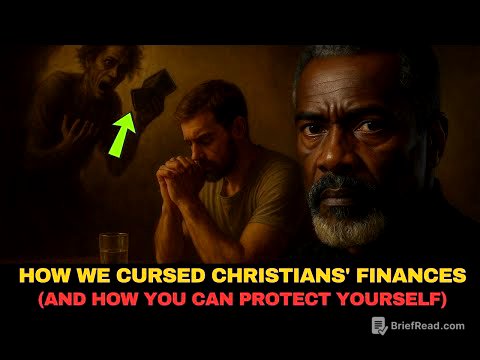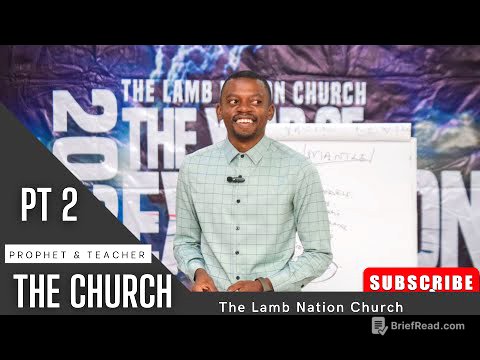TLDR;
This video addresses a question about the necessity of being part of a church and whether a non-denominational church aligns with biblical teachings. It argues that the Bible emphasises the importance of church membership and submission to spiritual leaders. The video also asserts that Jesus established a specific church, not a non-denominational one, and that the church founded by the apostles in the first century is the true preserver of truth.
- The Bible mandates church membership and obedience to spiritual leaders.
- Jesus established a specific church, not a non-denominational one.
- The church of the apostles is the foundation of truth.
Questions [0:00]
Rice, a former Protestant who lost his faith but recently returned, questions whether it's sufficient to have a personal relationship with Christ, live by the Bible, and attend a non-denominational church. He wonders if it's necessary to choose a Catholic, Orthodox, or other specific denomination.
Obey your leaders [0:59]
The response begins by stating that the Bible itself necessitates being part of a church and submitting to its spiritual leaders. Hebrews 13:17 is cited, which instructs believers to obey and submit to their leaders, who watch over their souls. Disobeying or making their job difficult can lead to rebuke from God. The Bible mandates having a bishop or overseer.
Being unified [2:14]
Hebrews 10:23-25 is referenced to highlight the importance of community and encouraging one another in faith. The passage encourages believers to hold fast to their hope, be unified, and provoke one another to love and good deeds. It stresses the importance of meeting together regularly as a family of faith, encouraging one another. Following Jesus means being part of a church, a body, a family with a leader.
Jesus builds his church/true church [3:02]
Matthew 16:18 is quoted, where Jesus says he will build his church. This establishes that Jesus intended to create a church.
The church has the highest authority on Earth [3:15]
Matthew 18:15-20 is used to illustrate that the church has the highest authority on Earth for Christians. If a member of the church sins against another, the issue should first be addressed privately. If that fails, one or two others should be brought along. If the member still refuses to listen, the matter should be brought before the church. If the offender refuses to listen even to the church, they should be treated as an outsider. The church's decisions are binding in heaven, meaning that practices and rules established by the church are recognised by God. When believers gather and agree on a decision affecting Christians, the Father will agree with their decision because Jesus is present where two or three are gathered in his name.
Did Jesus establish a non-denominational church? [5:48]
Rice is asked if the church at the time of Christ was denominational. When Rice answers no, it's pointed out that Jesus has been building the church for 2,000 years, not starting in the 16th or 20th century when non-denominational movements arose. The multitude of non-denominational churches (over 40,000) suggests it's not what Jesus started.
Church of the apostles [6:40]
1 Timothy 3:15 is cited, where Paul describes the church as the household of God, the pillar and foundation of truth. This means God preserves his truth and word through the church. The Holy Spirit empowers the church to protect, preserve, explain, and defend the truth. The church started at the time of the apostles. Rice acknowledges that his church started in the 20th century, meaning it cannot trace its origins back to the original church.









